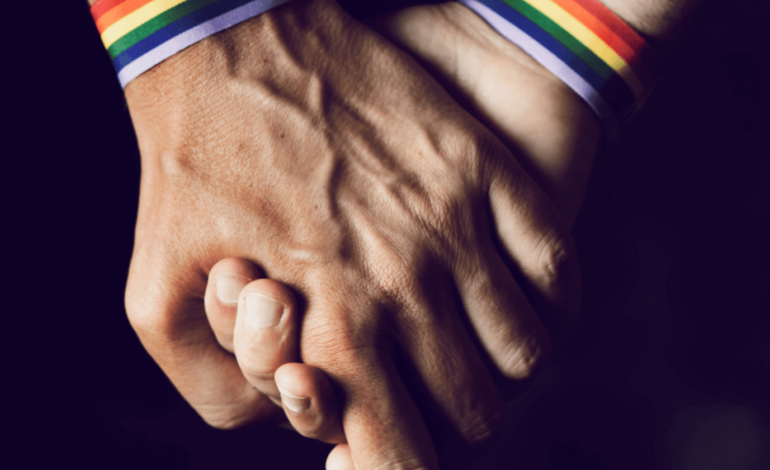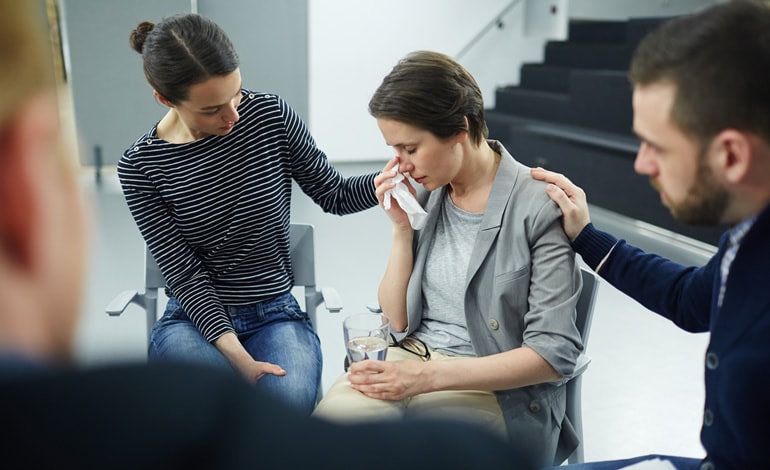Pride Month is held every June, which makes this a good time to take a look at substance use disorders in the LGBTQ community. While Pride is a celebration that also works to advance the recognition of LGBTQ rights, its spirit of unity and joy often overshadows a much darker problem: the struggles of those who suffer from addiction and mental health in the LGBTQ community. Members of the LGBTQ community often struggle to find substance use disorder treatment as they face many barriers. In addition, treatment approaches should also help to affirm their sexual orientation.
Studies reveal that substance use disorders, also known as addiction, are more common among individuals who identify as lesbian, gay, bisexual, transgender, queer/questioning, or somewhere else on the gender and sexuality spectrum (LGBTQ) than individuals in the general population.
In the United States in 2019, 2.6 million LGBTQ adults had a substance use disorder, and nearly 65% of these adults struggled with alcohol misuse.
Risk factors for addiction in the LGBTQ community
There are several risk factors specific to the LGBTQ community that may contribute to a higher rate of substance misuse and addiction in this community compared to non-LGBTQ people. One theory that may explain why the LGBTQ community is at an increased risk of developing a substance use disorder is minority stress. Minority stress is a theory that looks at how specific risk factors can influence negative mental health consequences that can lead to unhealthy coping behaviors, such as the use of substances to deal with related stressors. In other words, these individuals may misuse alcohol or drugs to cope with stress, trauma, stigma, depression, anxiety, or any other mental health disorders or negative feelings that present with identifying as LGBTQ.
These risk factors can occur on many different levels, including societal, personal, and family levels, and include the following:
- LGBTQ individuals discriminated against due to sexual orientation, gender, or race are four times more likely to develop a substance use disorder than those who did not experience discrimination.
- Increased risk of anxiety and depression.
- Experiencing trauma, violence, and harassment because of sexual or gender identification.
- Being ostracized or excluded.
- Stress-related to internalized transphobia or homophobia (fear of rejection or retaliation in those who aren’t publicly “out.”)
Studies show that LGBTQ adolescents with access to LGBTQ community organizations, programs, and support are less likely to use substances. As a result, it is important to talk about the importance of community in the LGBTQ addiction treatment world.
A community is defined by a feeling of fellowship and connectedness with others due to sharing common interests, goals, and attitudes. A community centered around addiction recovery is a network of individuals who share the common goal of lifelong sobriety and offer support and fellowship to their peers. Support can be volunteering in the community, offering car rides to 12-step meetings, hosting a recovery meeting in your home, offering a listening ear to someone who is struggling with their sobriety, or buying a cup of coffee to a fellow individual in recovery. Giving back to the community is an integral part of continuing care in our alumni programs. We at AKUA Mind and Body want to lead by example and give back to those within our community. Community plays a large role in mental health and addiction treatment. It takes a village of people to help one individual gain the tools, coping skills, confidence, and peace needed to enter the recovery journey.
It is critical to provide specialized addiction treatment to the LGBT community since traditional addiction treatment centers commonly overlook the unique needs of this population. Specialized LGBTQ addiction recovery programs can offer a safe, supportive environment that respects and acknowledges your gender and sexual identity and expression, coming out, and experiences with prejudice without the fear of discrimination or stigma.
About AKUA Mind and Body
AKUA Mind and Body is a full-service treatment center welcoming all those in the LGBTQ+ community. Akua provides residential treatment, partial hospitalization, intensive outpatient treatment, outpatient treatment, and virtual treatment to both men and women struggling with mental health disorders, including depression and substance use disorders, or both (co-occurring conditions). AKUA Mind and Body provides compassionate, evidence-based treatment to all individuals and families. We combine evidence-based medications and psychotherapy approaches with holistic therapies such as meditation, yoga, and equine therapy, as we believe in treating the mind, body, and spirit.
Our clinical staff and ancillary treatment teams take great pride in the care that we provide to our clients and their families. From intake to discharge, we believe in treating the client as an individual and not just treating the disorder. As a result, we provide individualized treatment plans for every client. We offer our treatment services across many locations in California, including Orange County, Newport Beach, Long Beach, San Diego, and Sacramento.
Akua also offers a FREE weekly PRIDE Support Group every Tuesday from 6 pm – 7 pm via zoom The link is tinyurl.com/AkuaPride. We hope to see you there.




